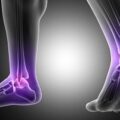Intermittent Explosive Disorder (IED) is a condition that often flies under the radar, yet it significantly impacts the lives of those who suffer from it and their loved ones. Have you ever found yourself or someone you know reacting with extreme anger over seemingly minor provocations? Do you wonder why some people have such intense, disproportionate outbursts? Understanding IED could provide some answers and solutions.
What is Intermittent Explosive Disorder?
Intermittent Explosive Disorder is characterized by sudden episodes of unwarranted anger. The Diagnostic and Statistical Manual of Mental Disorders (DSM-5) defines it as a failure to resist aggressive impulses, leading to serious assaults or destruction of property. These explosive outbursts are out of proportion to the situation that triggers them and often result in feelings of regret or embarrassment afterward.
Symptoms of IED
Frequent Explosive Outbursts
Individuals with IED experience frequent, sudden episodes of anger, which can manifest as verbal tirades, physical aggression, or both. These outbursts usually last less than 30 minutes and can occur with little or no warning.
Irritability and Impulsivity
A hallmark of IED is a persistent state of irritability and impulsivity. Those affected often feel on edge and may have difficulty controlling their temper, leading to aggressive behavior in situations where others might remain calm.
Physical Symptoms
During an outburst, physical symptoms such as increased heart rate, tingling, and chest tightness are common. These physiological responses can intensify the feeling of losing control.
Post-Outburst Regret
After an episode, individuals with IED often feel remorseful and may not understand why they reacted so aggressively. This can lead to a cycle of guilt and frustration, exacerbating the condition.
Causes of Intermittent Explosive Disorder
Genetic Factors
Research suggests that IED may have a genetic component. If a close family member has the disorder, there is a higher likelihood of developing it. Genetic predispositions can influence how the brain regulates emotions and responses to stress.
Brain Chemistry
Abnormalities in brain chemistry, particularly involving neurotransmitters like serotonin, can contribute to IED. Serotonin plays a crucial role in mood regulation, and imbalances can lead to difficulty controlling anger and aggression.
Environmental Influences
Exposure to violence or aggressive behavior during childhood can increase the risk of developing IED. Traumatic experiences and chronic stress can shape how individuals respond to anger-inducing situations later in life.
Underlying Mental Health Issues
IED often coexists with other mental health disorders such as anxiety, depression, and substance abuse. These conditions can exacerbate symptoms and complicate diagnosis and treatment.
Diagnosis and Treatment of IED
Diagnostic Process
Diagnosing IED involves a thorough evaluation by a mental health professional. This includes a detailed medical history, psychological assessments, and sometimes interviews with family members. It is crucial to rule out other conditions that may cause similar symptoms, such as bipolar disorder or personality disorders.
Therapeutic Interventions
Cognitive Behavioral Therapy (CBT) is one of the most effective treatments for IED. CBT helps individuals recognize and change negative thought patterns and behaviors that contribute to their explosive outbursts. Techniques such as stress management and relaxation exercises are also beneficial.
Medication
In some cases, medication may be prescribed to help manage symptoms. Selective serotonin reuptake inhibitors (SSRIs), mood stabilizers, and antipsychotic medications can reduce the frequency and intensity of explosive episodes.
Lifestyle Changes
Incorporating lifestyle changes can significantly improve symptoms of IED. Regular physical exercise, a healthy diet, adequate sleep, and stress-reducing activities such as yoga or meditation can help maintain emotional balance.
Living with Intermittent Explosive Disorder
Building Support Networks
Having a strong support network is essential for individuals with IED. Family, friends, and support groups can provide understanding and encouragement, making it easier to manage the condition.
Developing Coping Strategies
Learning effective coping strategies is crucial for managing IED. Techniques such as deep breathing, counting to ten, or removing oneself from a stressful situation can prevent an outburst from escalating.
Seeking Professional Help
Continual support from mental health professionals is vital. Regular therapy sessions can help individuals stay on track with their treatment plan and provide a space to discuss challenges and progress.
Conclusion
Intermittent Explosive Disorder is a complex condition that requires comprehensive understanding and management. By recognizing the symptoms, understanding the causes, and seeking appropriate treatment, individuals can regain control over their emotions and improve their quality of life. Have you noticed signs of IED in yourself or others? Taking the first step towards diagnosis and treatment can pave the way for a calmer, more controlled future.
In summary, Intermittent Explosive Disorder may pose significant challenges, but with the right approach, it is possible to manage its symptoms effectively. If you or someone you know struggles with frequent outbursts of anger, don’t hesitate to seek professional help. The journey to better emotional health starts with awareness and action.





